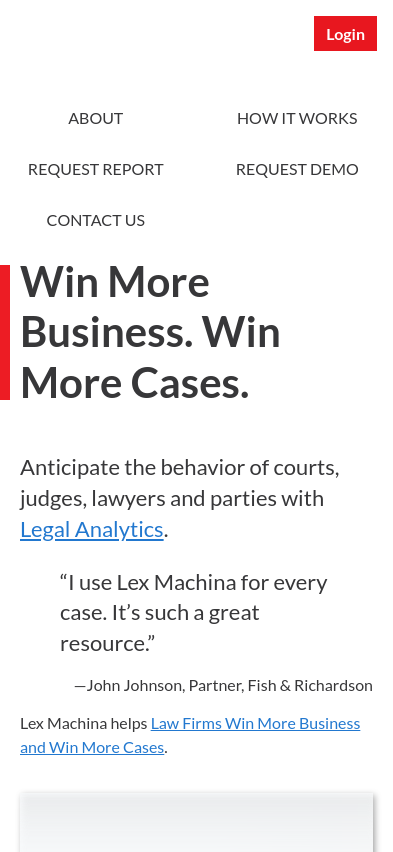⚡ZurzAI.com⚡
AI Start Ups Your Should Know
Lex Machina

Lex Machina offers data-driven insights enabling law firms to pitch, land new clients, and win lawsuits.
Overview of Lex Machina
1. Key Focus Area: Lex Machina, a division of LexisNexis, specializes in providing Legal Analytics® to legal professionals including law firms, companies, courts, and judges. Its core function is to enable the use of data-driven insights for crafting successful litigation strategies, thereby facilitating the winning of cases and attracting more business.
2. Unique Value Proposition and Strategic Advantage:
- Comprehensive Data Collection: The platform stands out by compiling legal data directly from court dockets, which is then vetted and enhanced using artificial intelligence coupled with expert human oversight. This ensures the provision of accurate and up-to-date legal data.
- Outcome and Insight Generation: Lex Machina’s value lies in its ability to offer unique outcome analytics, highlighting resolutions, timings, damages, findings, and more, which are vital for understanding case dynamics.
- Customizable Analytics: Users benefit from practice-specific filters and tags that help in quickly finding and comparing similar cases, thereby facilitating the creation of comprehensive case lists.
- Accuracy and Transparency: The platform is distinguished by its accuracy through the use of its Attorney Data Engine, which corrects and supplements missing information, providing a clearer picture of counsel involved in cases.
3. Delivery on Value Proposition:
- Advanced AI and Human Expertise Integration: By integrating cutting-edge artificial intelligence with attorney-reviewed processes, Lex Machina ensures precision and comprehensiveness. This means legal professionals can uncover critical insights on judges, courts, law firms, and opposing parties rapidly.
- Immediate Access and Customization: With on-demand subscription access, the platform supports the customization of analytics, allowing users to apply filters pertinent to their particular areas of interest or cases.
- Instant and Intuitive Analysis Tools: Quick Tools within the platform provide fast comparison capabilities for different entities involved in litigation, such as courts, judges, and attorneys, enhancing the speed and efficiency of the analysis.
- Detailed Reports: Lex Machina offers expansive reports covering various practice areas. These reports, created by a team of attorneys, engineers, and data specialists, demonstrate current litigation trends, assisting legal practitioners in making informed decisions.
- API Integration: The Lex Machina API provides direct access to the underlying data, facilitating integration into user workflows, thus enabling firms to seamlessly leverage analytics in their unique applications.
Conclusion: By offering an analytical edge through detailed legal insights and comprehensive data, Lex Machina positions itself primarily as a tool for boosting litigation success rates and enhancing competitive strategy. Its emphasis on precise data and customization capabilities makes it a salient resource for legal professionals aiming to optimize their litigation strategies and reduce associated risks.